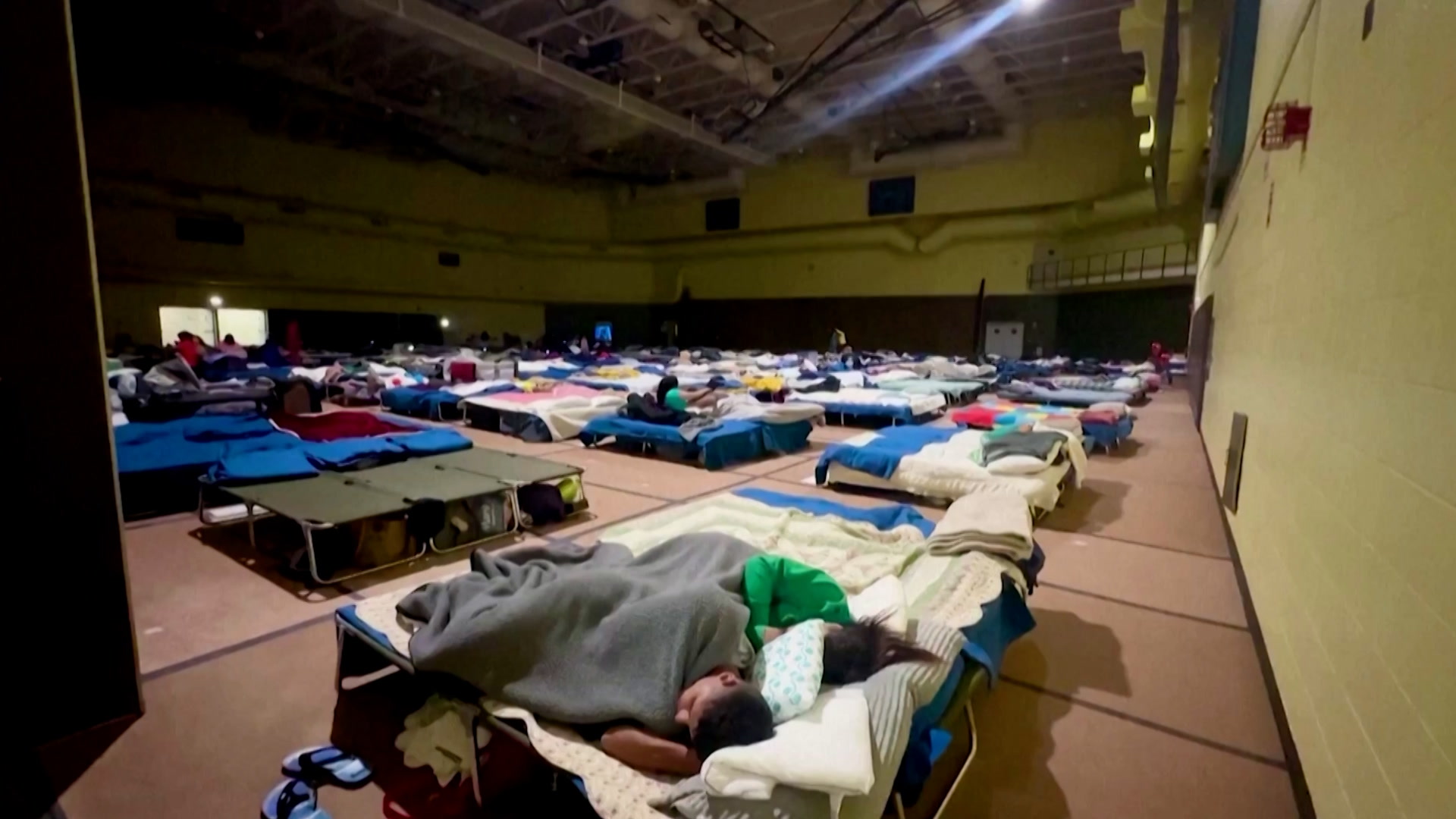1% of the world's population are now refugees

The rising number of refugees may have heightened political tensions in Europe and the US Image: REUTERS/Baz Ratner

Get involved with our crowdsourced digital platform to deliver impact at scale
Stay up to date:
Human Rights
If all the world’s refugees came together as a single nation they would collectively create one of the largest countries on Earth.
According to the UNHCR, there are now almost 70 million forcibly displaced people worldwide, around 1% of the world's population – the highest number in modern history.
The number of refugees has steadily increased since 1951 but has jumped dramatically in the last 10 years. That’s mostly because of the Syrian civil war which began in 2011 and has since forced millions to flee their homes and seek refuge in neighbouring countries and in Europe.
The most recent Global Peace Index, an annual report produced by Australian think tank the Institute for Economics and Peace, has found that for the fourth year in a row, overall levels of peace around the world have deteriorated.
Ninety-two countries have seen declining peace, while 71 countries have improved.
Falling peace

Increased terrorist activity, conflicts in the Middle East and rising tensions in Eastern Europe and north-east Asia have all contributed to declining levels of peace.
Even the most peaceful regions in the world according to the index – Europe, North America, Asia-Pacific, and South America – have all recorded declines.
The rising number of refugees and heightened political tensions in Europe and the US have meant that even stable countries have seen their scores lowered. For instance, 23 out of 36 countries in Europe deteriorated last year.
Now in its seventh year of civil war, Syria is the least peaceful country in the world, along with Afghanistan, South Sudan, Iraq and Somalia.
The global flashpoint continues to be the Middle East, the world’s least peaceful region.
Iceland is the most peaceful country in the world, followed by New Zealand, Austria, Portugal and Denmark.
The rise of refugees

Many indicators show that we live in a more peaceful world: There are significantly fewer deaths due to conflict, there is a much higher number of alliances between countries, there are more democracies around the world, and there are fewer armed forces. However, the nature of conflict is changing.
The last decade has seen an increasing number of civil wars. In 2015, there were 52 armed conflicts in the world, mainly in the Middle East and North Africa, including civil wars in Yemen, Syria and South Sudan.
When wars happen within borders civilians become extremely vulnerable. The increase in internal conflicts helps to explain the massive increase in the number of refugees, internally displaced people and stateless people in recent years.
Don't miss any update on this topic
Create a free account and access your personalized content collection with our latest publications and analyses.
License and Republishing
World Economic Forum articles may be republished in accordance with the Creative Commons Attribution-NonCommercial-NoDerivatives 4.0 International Public License, and in accordance with our Terms of Use.
The views expressed in this article are those of the author alone and not the World Economic Forum.
The Agenda Weekly
A weekly update of the most important issues driving the global agenda
You can unsubscribe at any time using the link in our emails. For more details, review our privacy policy.
More on Human RightsSee all
John Letzing and Minji Sung
April 9, 2024
Marie McAuliffe
April 8, 2024
Liam Coleman
March 7, 2024
Kate Whiting
July 12, 2023
Christa Odinga-Svatenson and Diana Alvarez
June 20, 2023






